Covid travel rules: Where you can go and what your refund rights are
New Zealand has restarted the quarantine-free travel bubble, but only with certain states and territories. Here’s where you can travel.
Coronavirus
Don't miss out on the headlines from Coronavirus. Followed categories will be added to My News.
New Zealand has reopened the quarantine-free travel bubble, but only with certain states and territories.
From 11.59pm on Sunday night, people from Victoria, South Australia, Tasmania and the ACT will be allowed to travel to New Zealand without spending 14 days in isolation, provided they have not visited a Covid-19 hot spot.
The remaining states and the Northern Territory are still locked out due to recent local outbreaks of the deadly virus.
New Zealand’s Ministry of Health said all travellers eligible to fly to New Zealand would be required to take a pre-departure test within 72 hours of when they are leaving Australia, which must return a negative result.
Travellers must also have not been in Queensland, the Northern Territory or Western Australia since 10.30pm (NZ time) on June 26, and NSW after 11.59pm (NZ time) on June 22.Those who have been in a designated hot spot within the past 14 days are not allowed to travel to New Zealand.
New Zealand officials paused the quarantine-free travel bubble with Australia last week in response to a growing number of local cases being reported across the country.
VICTORIA’S SHOCK BORDER CHANGE
Victoria has tightened its border with NSW declaring green zone areas as orange zones from Friday morning.
The Department of Health issued the alert on Thursday night, saying the decision was made out “abundance of caution” and on the advice of health officials as NSW posted 24 new infections.
Alice Springs was added to the list of banned locations, deemed a retrospective orange zone from June 25.
The backdated reclassification meant anyone from the town who travelled to Victoria on or after June 25 must get tested immediately.
Victoria has also classified the Perth metropolitan and Peel regions in WA, Queensland local government areas in southeast Queensland and Townsville, Alice Springs, greater Darwin, Palmerston and Litchfield in the NT, and greater Sydney, Shellharbour, Central Coast and Wollongong in NSW as red zones.
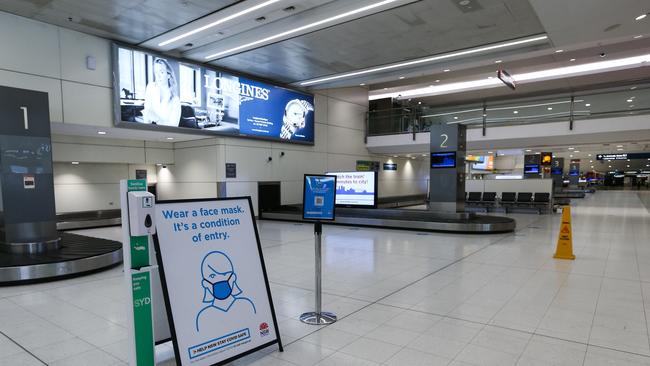
There are still some places travellers can go despite the border changes, and experts have warned travellers need to be aware of their rights when it comes to refunds for accommodation, car hire, flights and other fees.
Since the onset of the pandemic, many travel providers today offer flexible options to book, reschedule or cancel a trip at ease.
Expedia’s latest Travel Companions report shows, flexibility is increasingly becoming a prerequisite for Aussies, with 60 per cent stating it’s important they can make changes to their booking easily.
For Aussies who need to cancel their trips, they are advised to read the fine print and double check the deadline to cancel for a full refund, in many instances some hotels may require travellers to cancel more than 24 hours prior to check in.
For travellers still planning to holiday within their own state, ensure to check the latest health and travel advisories.
The Health Direct Covid-19 Restriction Checker can help with local state and territory updates on rules for:
*Accommodation
*Cafes and Restaurants
*Domestic Travel
*Entertainment Venues
*Education and Childcare
*Gatherings and Work
*Hair and Beauty Services
*Retail and Sales
*Sport and outdoor recreation
*Weddings, Funerals and Religious services.
See how each state compares below:
VICTORIA
Victoria has shut its border to parts of NSW and the Northern Territory following an explosion of new cases.
Greater Sydney, Shellharbour, Central Coast and Wollongong are red zones under Victoria’s travel permit system, meaning an exemption was needed to gain entry into the state.
Also red zones are the Perth metropolitan and Peel regions in WA, and Queensland local government areas of: Brisbane, Gold Coast, Ipswich, Lockyer Valley, Moreton Bay, Logan, Noosa, Redland, Scenic Rim, Somerset and Sunshine Coast.
The Alice Springs local government area has also become a red zone under Victoria’s travel permit system.
Victoria also declared Greater Brisbane an orange zone, meaning anyone already in Victoria who was in greater Brisbane between 22 June and 1am on June 30 must get tested and isolate until negative.
All of regional NSW and the ACT have now been deemed an orange zones, which means people need to isolate and get tested within 72 hours and stay isolated until they receive a negative result after entering Victoria.
The Greater Darwin area was designated a red zone on Sunday night, including the local government areas of the City of Darwin, City of Palmerston and Litchfield.
A non-Victorian resident in a red zone cannot obtain a permit to enter Victoria, other than for transit.
Victorian residents who have been in a red zone, other than for transit, can obtain a red zone permit to enter Victoria but they must travel directly home, get tested, and quarantine for 14 days.
You can find more information here.
NSW
Travel to NSW has been banned for those living under tough lockdown measures in their own state.
The NSW government issued new travel rules to those travelling into the state from the NT, Queensland or WA in the previous 14 days.
From midnight on Wednesday they were required to complete a declaration form, similar to those who have been in Victoria in the previous 14 days.
“People subject to the stay-at-home measures in the Northern Territory, Queensland and Western Australia should not be travelling to NSW unless they are permitted to do so by those state or territory’s public health orders,” NSW Health said.
“If you are permitted to travel to NSW after 12.01am on Wednesday June 30, and have been in the areas that are subject to lockdown measures, you must follow the stay-at-home orders in place in NSW for 14 days after being in the lockdown area.”
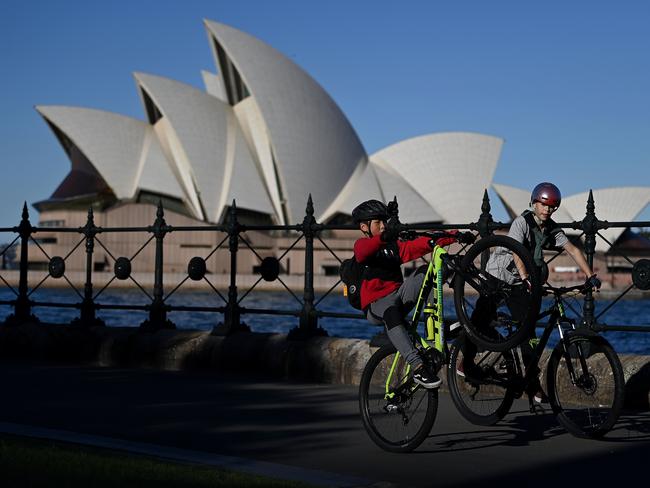
Due to NSW’s escalating Covid-19 situation, other states and territories have forced tough restrictions on those returning from the virus-stricken state.
No permit is required to travel to NSW from South Australia or Tasmania.
ACT
Non-ACT residents who have been in greater Sydney, Central Coast, Blue Mountains, Wollongong and Shellharbour regions of NSW on or after 12.01am June 21 must not enter the ACT unless they obtain an exemption before arriving.
Travel has also been banned for those nonresidents who have been in Darwin, Palmerston or Litchfield on or after 4.00pm on June 27 without an exemption.
ACT residents who have been in these areas must complete a declaration form and quarantine on arrival for 14 days since they were in the area or until 11.59pm on July 9 – whichever is earlier.
Non residents who have been in close contact exposure site location in NSW, Victoria, Queensland and Northern Territory are also not allowed to enter the ACT.
More information can be found here.
QLD
The lockdown affecting parts of Queensland will end for the Local Government Areas of Noosa, the Sunshine Coast, Ipswich, Logan, Reglands, the Gold Coast, Scenic Rim, Lockyer Valley, Somerset and Townsville at 6pm on Friday.
However, it will continue for the Brisbane City Council and Moreton Bay LGAs until at leat 6pm on Saturday.
If you are from, or have visited Greater Sydney (Blue Mountains, Central Coast, Shellharbour and Wollongong inclusive) you are not permitted to enter Queensland.
Those from other jurisdictions can enter the state, but if you have been to an “interstate exposure venue” you must complete a travel declaration and quarantine as per the directions provided.
SOUTH AUSTRALIA
South Australia has taken a tough approach to Australia’s unfolding Covid-19 situation, slamming its border shut to five jurisdictions.
From 8.26pm on Sunday it was prohibited to travel to SA from ACT, NSW, NT, Queensland and WA unless a person held an authorised travel permit.
Victorians can travel to SA, but anyone who had visited a Covid-19 tier one or tier two public exposure site (but not those dated before June 20) were subject to level 6 restrictions.
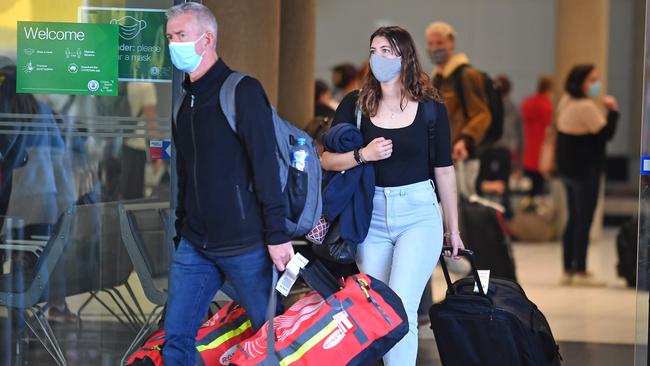
People who were escaping domestic violence and who have been at a tier one or tier two exposure sites were permitted to enter South Australia subject to Level 4 requirements:
- Must self-quarantine for 14 days;
- Covid-19 test on day 1, 5, and 13;
- A person must wear a face mask at any time that they come into contact with the public.
The state currently has its borders shut to Western Australia, Queensland, the Northern Territory, and the ACT.
Victorians entering the Festival State must take a Covid test on day one. However, if you have been to a “tier 1” or “tier 2” exposure site, you cannot enter.
More information can be found here.
NORTHERN TERRITORY
The Northern Territory government recently extended the lockdown affecting the Greater Darwin Area, which includes Darwin, Palmerston and Litchfield Council areas, and Wagait and Belyuen Shires.
It will now run until 1pm (ACST) on Friday, July 2.
Anyone travelling into the NT from 33 NSW local government areas, including greater Sydney, the Central Coast, Wollongong and the Blue Mountains will need to complete 14 days of mandatory supervised quarantine at their own expense.
Travellers, including returning Territorians, must complete an online Border Entry Form no more than 7 days before entering the NT. You canaccess the form here.
You must declare on the form if you have been in quarantine in another state or Territory in the 28 days before entering the NT.
You don’t need to have a paper copy of your completed entry form, but make sure it’s available on your mobile phone or other device.
You must wear your own face mask at all major NT airports and on flights — including Darwin International, Alice Springs, Yulara (also called Connellan Airport), Gove and Groote Eylandt airports and when on the airfield. Children under the age of 12 and people with a specified medical condition don’t need to wear a mask.
You can find more information on declared hot spots here. You can also call 1800 490 484 (ACST) 8am to 4:30pm, Monday to Friday (closed public holidays).
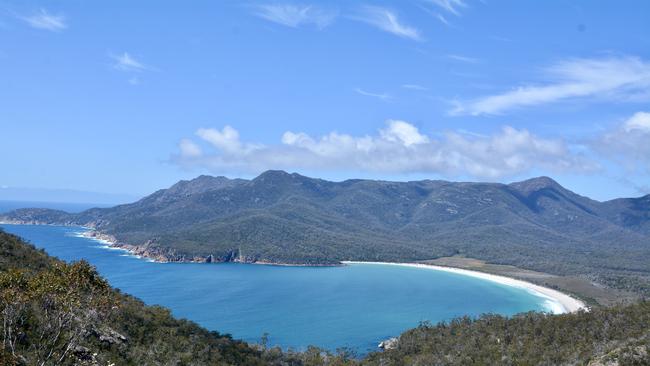
TASMANIA
Tasmania has joined other states closing its borders to the Perth and Peel regions after a positive coronavirus case emerged in WA overnight.
It comes after state health authorities imposed restrictions of varying severity for several Australian jurisdictions.
On Tuesday, Tasmania’s Premier Peter Gutwein said the Perth and Peel regions were designated as high-risk destinations
Anyone who has visited the sites would not be allowed to enter Tasmania unless they had an exemption.
“If you don’t need to travel interstate, don’t travel,” Mr Gutwein said.
“This is a very serious reminder of what we need to do to keep our community safe.”
Three FIFO workers who were at the infectious NT Granites Mine site are in isolation in Tasmania.
All three returned negative results in their first round of testing on Tuesday morning.
There are restrictions in place for parts of NSW, Queensland, Victoria, NT, and WA, and people who have been to those states and want to travel to Tasmania should check the state government’s website to see what they need to do.
The restrictions apply to parts of the affected states and territories that have been designated high risk.
Travel from 33 NSW local government areas, including Greater Sydney, the Central Coast, Wollongong and the Blue Mountains has been banned for anyone other than those deemed essential travellers.

All those who have visited the NSW high-risk exposure sites will also not be able to enter.
Travel from Darwin, Palmerston and Litchfield in the Northern Territory has also been banned for anyone other than those deemed essential travellers.
Anyone who has visited the high-risk exposure sites in the NT, Queensland, Victoria, Western Australia will also not be able to enter.
WESTERN AUSTRALIA
Western Australia has categorised the risk of entry from each jurisdiction into very low, low and medium.
Western Australian Premier Mark McGowan has announced that the hard border had been reinstated against travellers from Queensland at 3pm on Tuesday.
That means those travellers need an exemption to enter Western Australia, must self-quarantine for 14 days and be tested.
Returning West Australians will be classified as exempt travellers under compassionate grounds, which means they must complete 14 days of self-quarantine and be tested.
That means Queensland joins NSW at medium risk.
Travel from Victoria, ACT, and NT was identified as low risk, meaning 14 days quarantine is required after entering the state.
Travel from Tasmania and South Australia was deemed very low risk with no quarantine required.
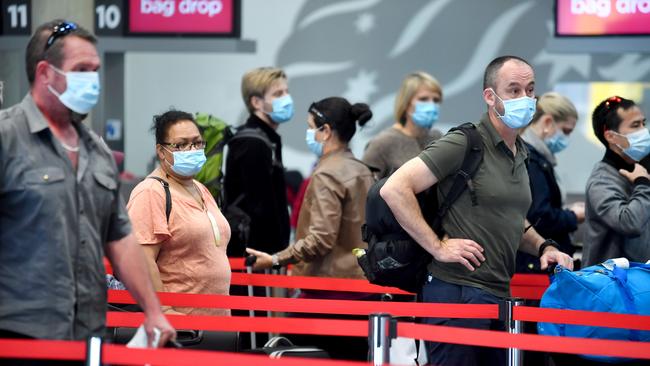
Medium risk restrictions:
- Not permitted to enter without an exemption through G2G PASS.
- If permitted entry, you must self-quarantine at a suitable site for 14 days. If a suitable site is not available, you will be directed to a government approved quarantine facility at your own expense.
- Approved travellers are subject to a Covid-19 test within 48 hours of arrival and on day 11 of quarantine, or at any point when symptoms develop.
- You must wear a mask from when you enter WA until you arrive at suitable self-quarantine premises or government approved quarantine facilities.
Low risk restrictions:
- Before travelling to WA, complete a mandatory G2G PASS registration and declaration.
- Complete a health screening on arrival.
- Scan your G2G PASS and then verify you have suitable site for self-quarantine.
- You must wear a mask from when you enter WA until you arrive at suitable self-quarantine premises or government approved quarantine facilities.
- You must present for a Covid-19 test on Day 11 if still in WA.
Very low risk restrictions:
- Before travelling to WA, complete a mandatory G2G PASS registration and declaration.
- Complete a health screening on arrival.
- Scan your G2G PASS to exit the airport.
- No quarantine required.
WHAT HAPPENS IF COVID AFFECTS MY TRIP?
ACCOMMODATION
If you have booked accommodation or an experience via Airbnb, its “extenuating circumstances” policy will only apply if the guest or host is sick with Covid-19.
The guest will receive a full cash refund or travel credit if this happens.
It is therefore important to review the cancellation policy that each host or experience provider has set to avoid being left out of pocket in the event of a Covid-related disruption.
For hotels and other accommodation providers, the Australian Competition and Consumer Commission advises that the terms and conditions of their booking will dictate whether they are eligible for a refund if Covid travel restrictions disrupt their arrangements.
The consumer watchdog says that terms and conditions will vary between providers, and warns that in some cases consumers might not be entitled to a full, or any, refund of their booking.
For Expedia customers who need to make a change to their bookings, travellers can easily do so through the online virtual agent or through the Expedia mobile App, minimising the need to speak with a customer service agent.
ALPINE RESORTS
Thredbo: Guests can request a cancellation, a change of dates, and MyMoney Credit for pre-purchased lift, lesson, rental product and/or accommodation purchases via Thredbo Resort Centre or the Thredbo Alpine hotel if:
– Thredbo is closed due to COVID-19; or
– Government policies due to COVID-19 prevent guests from travelling to Thredbo Resort on the intended dates.
Perisher (including The Station and the Perisher Valley Hotel): No changes will be made to bookings, including name changes to lift tickets, less than seven days prior to arrival.
If accommodation is unable to be provided or the resort is close as a result of COVID-19, a refund will be provided
The Perisher Valley Hotel and The Station will provide cancellation, change of dates, credit forward or full refund on all prepaid accommodation if:
– You, a family member or travelling companion contract COVID-19 and are unable to travel on your intended dates; or
– Government policies due to COVID 19 prevent you from travelling on your intended dates; or
– Your transport is cancelled or disrupted due to COVID 19 preventing you from arriving in resort for your travel dates.
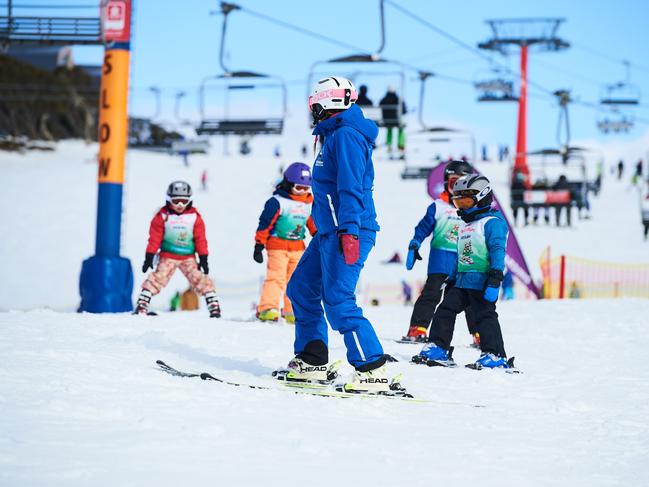
Hotham Holidays: If the resort if unable to provide you with the lift tickets, lessons or rental products and services you have booked or the resort is closed as a result of Covid-19, a full refund will be provided.
If the virus prevents you from travelling, cancellation, change of dates, credit forward or a full refund on accommodation, prepaid lift, lesson and rental products will be issued if:
– You, a family member or travelling companion contract COVID-19 and are unable to travel on your intended dates; or
– Government policies due to COVID-19 prevent you from travelling on your intended dates; or
– Your transport is cancelled or disrupted due to COVID-19 preventing you from arriving in resort for your travel dates.
If Hotham Holidays is unable to provide you with the accommodation that you have booked or the resort is closed as a result of COVID-19, we will provide you with a full refund.
Buller Holidays: Cancellation, change of dates, credit forward, or a full refund on prepaid resort entry, accommodation, lift tickets, lesson, rental products and other prepaid services and activities will be provided if:
– You or a family member (or travelling companion) contract coronavirus and are unable to travel on your intended dates; or
– Victorian Government coronavirus restrictions close Mt Buller resort; or
– Victorian Government coronavirus restrictions prevent you from travelling on your intended dates; or
– Your transport is cancelled or disrupted due to coronavirus preventing you from arriving in resort for your travel dates.
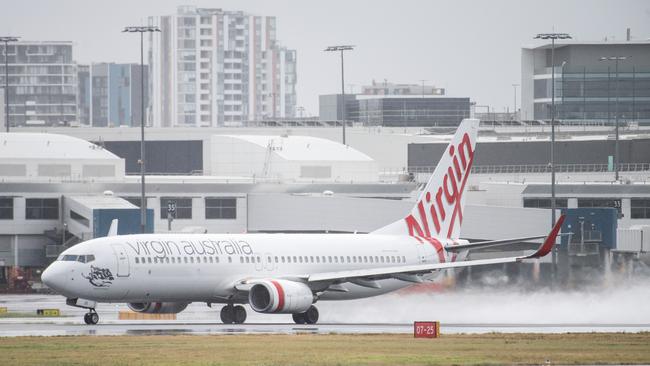
FLIGHTS
Qantas: Offers unlimited fee-free date changes for domestic flights booked between May 21, 2020 and July 31, 2021; trans-Tasman flights booked between October 15, 2020 and July 31, 2021; and international flights booked between February 25 and July 31, 2021. You must contact the airline before your scheduled day of departure and select a new travel date within 12 months of your original booking.
You can also request a flight credit if you no longer wish to travel.
In the event of border closures, Qantas recommends calling its customer service team on 13 13 13.
More information can be found here.
Jetstar: Customers are eligible for a credit voucher for the full value of their booking if their flight is cancelled or affected (which the airline explains here) by border restriction changes.
They can also purchase FareCredit when finalising their payment when booking via Jetstar. This lets travellers cancel their booking for any reason before airport check-in opens and provides them a travel credit.
Virgin: The airline has extended is Flexible Flying policy until February 28, 2022. This means customers can change the date of their flight without charge and as many times as they like, though this must be done prior to the travel date. They can also request a travel credit.
More information can be found here.
Rex: All bookings come with a “Covid refund guarantee” that provides a full refund of the fare, or flight changes with no charge.
This applies to any passenger whose trip has to be cancelled or changed due to Covid-related reasons, even if Rex’s flights operate as scheduled.
More information can be found here.
The ACCC says that consumers have a right to a refund under the terms and conditions at the time they purchased a ticket.
It also “expects that consumers will receive a refund or other remedy” in most circumstances if their travel is cancelled due to Covid.
RENTAL CARS
Budget:Recommends selecting the “Pay at Counter” option when booking a car, which offers free modifications and cancellations at any time.
Those who select the “Pay Now” option can cancel for free with at least 24 hours notice until December 19, 2021.
Europcar: Currently offers free cancellation on bookings if restrictions come into place, and booking modifications at no cost.
Thrifty: Currently offers options to cancel and modify bookings without charge.
Hertz: No cancellation fee if done within 24 hours of the booking, and free booking modifications.
FOOTY TICKETS
The NRL is refunding those who cannot go to games like State of Origin.
The AFL states: In the event of extenuating circumstances, the AFL may also facilitate a refund of a ticket if you seek entry to the venue but are not permitted access to the venue due to any COVID-19 restrictions, including if you appear to have any COVID-19 symptoms, or if you can produce supporting evidence of your incapacity to attend a match, event or function in the circumstances set out in their Covid Conditions.
More Coverage
Read related topics:Explainers




